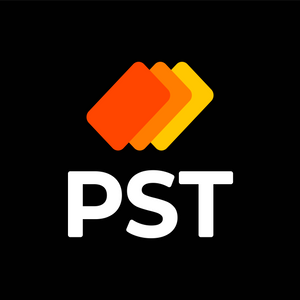Facebook is the largest social media platform in the world, with over 2.9 billion active users. For advertisers, it's a goldmine of potential customers, but it can also be a minefield of payment issues. One of the most significant issues that advertisers face is the Risk Payment system. This payment block can result in a Facebook ad accounts ban and prohibition of advertising, which can be devastating for businesses. In this article, we'll explain what Risk Payment on Facebook is, and why PSTNET cards are the best solution for Facebook payments.
What is FB Risk-Payment?
Risk Payment is a payment issue that occurs when Facebook's payment system detects suspicious activity on an advertiser's account. The suspicious activity could be a result of several factors, including not enough funds on the debit or credit card, using a credit card that is missing important details, the card issuing geo not matching the billing address, or an precarious BIN. In some cases, the bank might not confirm international transactions, which can also trigger Risk Payment.
What are the most common reasons for risk-payment bans?
Not enough funds on debit or credit cardOne of the most common reasons for Risk Payment is insufficient funds on the debit or credit card (or virtual card for Facebook). Facebook's payment system is designed to deduct the exact amount of money needed for the ad campaign, and if the account balance is insufficient, the payment system will detect it and flag ad accounts for Risk Payment. Virtual cards from PSTNET have an auto-refill option to lower such risks.
Using a credit card that is missing important details
Another common reason for Risk Payment on Facebook is using a credit card as a FB payment method with incorrect card details, such as the CVV or expiration date. Facebook's payment system requires all the necessary details to complete a payment order. If any of the details are incorrect or missing, the payment system will detect it and flag the account for Risk Payment, that may result in an ad accounts payment block. PSTNET service provides all the necessary virtual card details for successful payments.
Card issuing geo not matching billing address
If the location of the issuing bank does not match the billing address in the advertising account, it could also trigger Risk Payment. This is because such mismatch might be perceived as a sign of fraudulent activity in the eyes of advertising platforms like Facebook. Virtual payment cards from PSTNET are not affected by such vulnerabilities as they can be issued in either dollars or euros.
Untrusted BIN
BIN (Bank Identification Number) is a crucial factor in the payment process. An untrusted BIN could trigger Risk Payment, as cards with such BIN might be used for suspicious actions many times before. PSTNET's unique BINs ensure that the card will be accepted by advertising platforms and that the payment process will be as smooth as possible.
Issues on the bank side
In some cases, the bank might not confirm international transactions, which can trigger Risk Payment. This issue is prevalent in countries with strict financial regulations. PSTNET's cards are issued by reputable international banks and ensure that the payment process is hassle free.
Virtual payment cards from PSTNET
PSTNET provides virtual cards in $ and € for online shopping and advertising (Facebook Ads, Google Ads, TikTok Ads, Bing Ads, Twitter Ads, etc). Meet premium VCCs with several top up options (including crypto) from $1, with up to 100 virtual cards for free.

